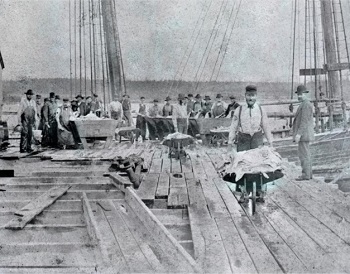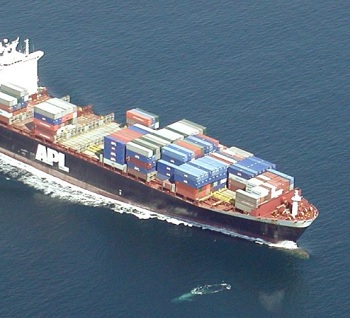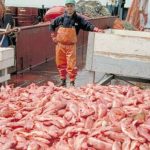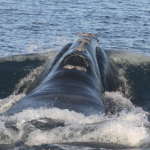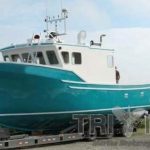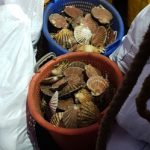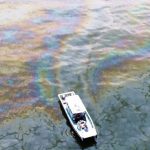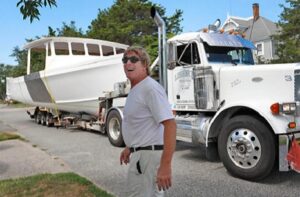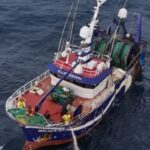Category Archives: Pacific
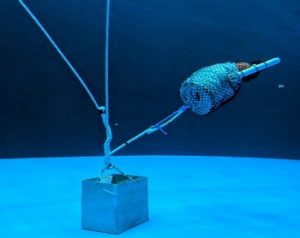
California crab fisherman are concerned the so-called ‘ropeless’ fishing gear, is not the answer
Is the so-called “ropeless” fishing gear the silver bullet for solving the perceived problem of marine mammal interactions in California’s crab fisheries. Several profit-driven environmental groups, including Oceana would like the public and the California Department of Fish and Wildlife (CDFW) to believe these baseless claims. That’s because these groups are ramping up efforts to force California’s historic and economically most important fishery – which helps create millions of dollars annually for working families – to adopt expensive, impractical and unworkable new fishing gear, which would force most crab fishermen out of business. By Johnny Atkinson >click to read< 15:33
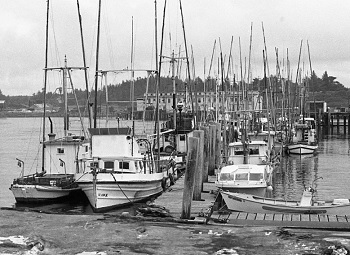
A thriving fishing industry
An article on the front page of the Aug. 4, 1966, Western World told the story. “Fishing activity in the Port of Bandon has definitely been on the increase during the past two weeks, reports Graydon Stinnett, owner of Bandon Seafood Market. “From an average of 21 fishing boats per day in July, mid-week count yesterday indicated 50 boats, and this number is apt to be raised by five or more per day, while the present season is in progress, said Stinnett. “Attracting a large number of California fishermen, Stinnett is now working at a peak capacity,,, >click to read< 08:13
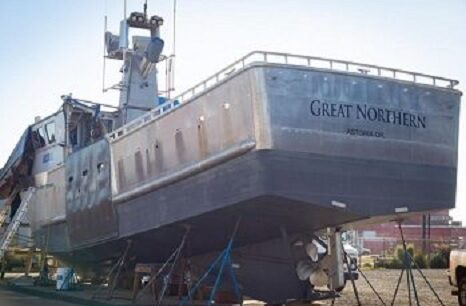
Port of Ilwaco Boatyard abuzz: Skippers and crews get set for busy seasons
The boatyard has been even more abuzz than normal since arrival of a much-anticipated new 75-ton marine Travelift on Nov. 3. “Boats are getting bigger and wider and we want to modernize our facility to meet their needs,” Glenn said. The colossal new machinery has already eased haul-outs, as more boats begin to arrive, eager to complete annual maintenance ahead of upcoming fishing seasons, starting with Dungeness crab, typically in December. The new marine lift was assembled over two days outside the boatyard before making its first official haul out with the F/V Branko Storm on Nov. 5.,, >21 photos, click to read< 16:21
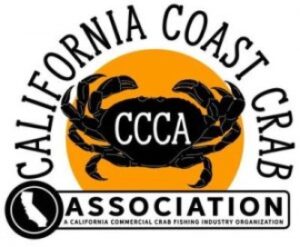
Punitive New Rules Will Crush CA Dungeness Crab Fishing Families, Threaten Holiday Crab Traditions
This week, the California Department of Fish and Wildlife (CDFW) put into effect onerous new regulations that among other things, could delay or close the state’s iconic crab fishery if whales are present near the crab grounds and could economically devastate our coastal communities that rely on the fishing and seafood industry. Called the Risk Assessment Mitigation Program (RAMP), these punitive rules also include triggers for crab fishery closures that are more restrictive than even the strictest fishery laws in the nation, the Marine Life Protection Act (MLPA) and the Endangered Species Act (ESA). “Regulators seem to be more concerned about the optics in the media of the rare occurrence of an entangled whale than the fact that the populations of these marine mammals, which migrate off our coast, are skyrocketing, and may soon be eligible for removal from the Endangered Species List,” said Ben Platt, president of the California Coast Crab Association (CCCA). >click to read< 10:02
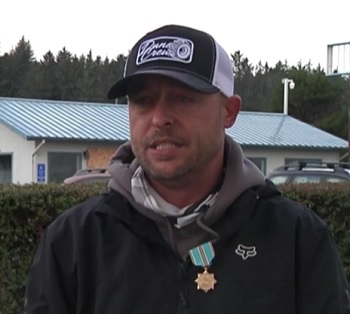
Coast Guard honors Oregon man with the Distinguished Public Service Award who saved 3 people from capsized commercial fishing boat
Curtis Green saw the 40-foot Darean Rose get stuck on a sand bar the day after Christmas 2019 as he worked the dock at Russell’s Marine Fuel & Supply, his family’s business in Charleston. Then the boat capsized. Green yelled for someone to do something. Then he looked around – and he got it done. “I saw the panic in their eyes, I could literally see the whites of their eyes as it was going down,” he said. “I just happened to be the closest one.” Video, >click to read< 07:46
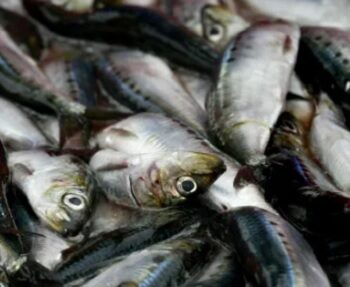
The sardine war hits a lull: Commercial fishing industry lands a victory in Pacific sardine management
The Pacific Fishery Management Council, which oversees fishing of Pacific sardines, voted unanimously in September to maintain the current sardine fishery management process that calls for reassessments after each year’s stock assessments. At the moment, the direct commercial sardine fishery is closed. “Fishery managers have failed to learn from the mistakes of history,” said Geoff Shester, senior scientist at marine conservation group Oceana,,, Diane Pleschner-Steele, executive director of the California Wetfish Producers Association, argues that sardines are not overfished and “the Council’s unanimous decision shows that they understand reality, the big picture.” >click to read< 14:27
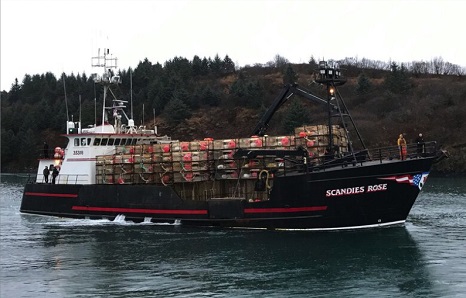
Settlement reached in sinking of F/V Scandies Rose for more than $9 million to surviving crewmen and families
The owners of the Scandies Rose have reached a settlement of more than $9 million with two surviving crew and the families of four men who died when the Washington-managed crab boat went down Dec. 31 off Alaska. Jerry Markham, an attorney for the families of three of the deceased, also confirmed the settlement, and said his clients “are relieved and pleased that the matter is settled.” The Scandies Rose disaster took the lives of five crew,,, The two survivors of the Scandies Rose, Dean Gribble Jr., and Jon Lawler, told harrowing tales of a severe list that imperiled the vessel. Both Lawler and Gribble eventually made it to a life raft.,,, >click to read< 10:14
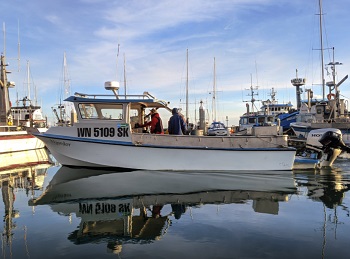
A Day in the Life: Fourth Generation Puget Sound Crabber Whatcom Fisherman Kaegan Gudmundson
Kaegan Gudmundson knows he will soon depart Blaine Harbor on his small commercial crabbing boat Njordor, named after the Norse God. His vessel, at 25 feet, is one of the smaller boats in the fishery. He often operates a one-man crew and never has more than one other person crabbing with him. His boat is built for speed over size, allowing him to quickly travel between his pot locations. Gudmundson’s days start at 4:30 a.m. with coffee and breakfast before heading to the harbor. >click to read< 10:30
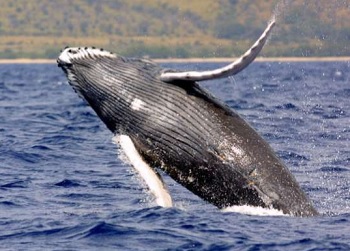
California crabbing rules a concern says North Coast fisherman
Local crab fisherman Mike Cunningham said he’s spoken with fishermen across the West Coast who take issue with the new rules. “We always look to avoid entanglements with whales,” Cunningham said. “The biggest problem (with the new rules) is that they are talking about closing massive areas to fishing. You could have an entanglement problem near Monterey, and the director (of Fish and Wildlife) could close the waters from Monterey up past Humboldt.” There are six fishing zones along the state’s coast. “The director now has the authority to do anything at any time,” Cunningham said. “Now, sometimes, it may just be a fleet advisory or warning, but it could go all the way to closing the entire coast to crab fishing.” The new rules stem from a lawsuit filed against the state by the Center for Biological Diversity, settled in 2019, >click to read< 19:48
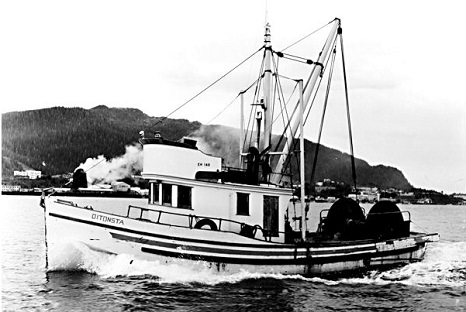
Before Fiberglas – British Columbia & Wahl Boatyard
In the early 1900’s with the pushing through of the Grand Trunk Pacific Railway from Edmonton to Prince Rupert, the Canadian government promoted land grants and settlements up the coast of British Columbia. Many Scandinavians took advantage of the opportunity and moved their families to Canada’s west coast. Fishing and logging were the staples of the economic engine at the time, and boats were needed for both as well as for transportation between coastal communities. Many of these settlers chose to build their own boats. In the early 1920’s, Ed Wahl moved his family from Norway and settled in Port Essington, a small community on the west coast situated due west of Edmonton and south of Prince Rupert, near the mouth of the Skeena River. photos, links, >click to read< 10:38
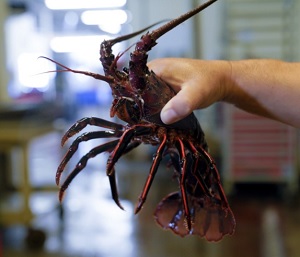
California Lobster season debuts amid changing seafood industry
It’s California spiny lobster season, from October through mid-March. Local fishermen and seafood retailers are celebrating its arrival, announcing the happy news that prices are the lowest in many years and the supply plentiful. What’s changed? In recent years, more than 95 percent of these well-loved California crustaceans were shipped to China, leaving only high-priced, limited quantities for local consumption. Rumors circulated that some fishermen were contemplating suspending operations, discouraged by their lost markets. Then, just as quickly, attitudes changed, as reality sank in. “People have to eat. If we don’t fish, what are people going to eat?” >click to read< 09:40
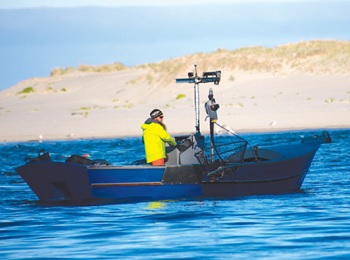
Bend couple puts out commercial fishing boat fire
When she saw the smoke rising off a boat docked at the Port of Alsea, Amanda Wold made joke about someone “hiding out there smoking a big joint,” she said. “It started out slow, then it started to billow, and then it flamed.” A battery on a commercial crabbing boat was on fire. Amanda and her husband, Justin Wold, of Bend, sprang into action, calling 911 and searching for a fire extinguisher. While the owner of the fire extinguisher hasn’t come forward, the owner of the burning boat, Pat Kemmish, was grateful for the Wolds’ quick response. “It’s my livelihood,” Kemmish said of the boat. >click to read< 16:51
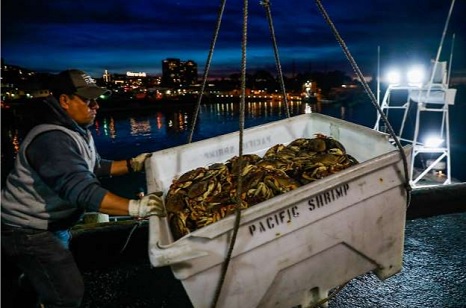
Dungeness crab season might not open for Thanksgiving again
New state regulations may mean that Dungeness crabs won’t be in stores in time for Thanksgiving. The rules, aimed at preventing entanglements “I want to make sure it’s understood what kind of effort we’re putting into it as fishermen and how effective we’ve been,” said Dick Ogg, a Bodega Bay fisherman and a member of the California Dungeness Crab Fishing Gear Working Group that developed the rules. He said that fishermen have worked hard to make sure their gear is set up better to lower risk. “We’ve really reduced our interaction and entanglement rates.” Ogg said there is a lot of anxiety in the fishing fleet about what will happen with the coming season and whether they should start gearing up for a Nov. 15 opening or whether it will be delayed. >click to read< 10:01
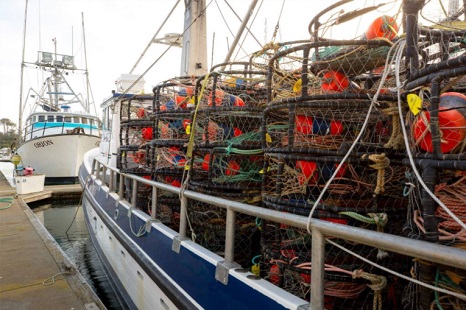
Ropeless fishing gear won’t save whales
If you live in one of California’s historic fishing communities like Bodega Bay, (or Coastal New England) you’ve probably heard the term “ropeless” crab fishing gear. That’s the new buzzword for equipment being promoted by environmental groups to solve the perceived problem of whale interactions with fishing gear. These groups have convinced the California Department of Fish and Wildlife to adopt onerous new regulations that will force crab fishermen to adopt expensive, impractical and unproven fishing gear that will put most of us out of business. The truth, however, is something different. How do we know this? Both the East Coast lobster fishery and the West Coast Dungeness crab fishery, each of which are made up of thousands of independent fishermen, have tested the pop-up ropeless gear and found it to be faulty. >click to read< 09:54
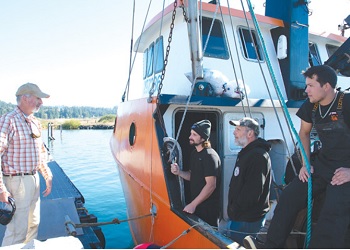
New ice plant at terminal, Community Ice
After the F/V Evolution took on eight tons of flake ice last Friday, Oct. 16, Ed Backus, general manager of Community Ice, walked out the gangway to thank the captain. It wasn’t the first time the boat filled up at the new ice plant. “It’s good ice,” the News-Times overheard someone on the boat tell Backus. The F/V Evolution is a shrimping boat, mixing in the ice as the shrimp is loaded on board. When delivered, the ice and the shrimp are mixed. “What’s important to a shrimp vessel is that the ice stays cold and loose, so they can shovel it easily when they’re mixing it with the harvested product,” Backus said. >click to read< 18:12
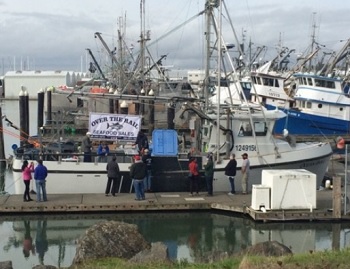
Bellingham Dockside Market – From Tide to Table
Rain had been in the forecast, but as my fella and I strolled from the Squalicum Harbor parking lot to Gate 5 shortly before noon last Saturday to attend the soft opening of the Bellingham Dockside Market, glimpses of blue sky belied the prediction of inclement weather. As we joined a stream of other masked shoppers eager to support the new hub that makes it possible for local fisher-folks to collectively sell their catch directly from their boats or adjacent to the dock, By the time we made our way to the F/V Ocean Swell, the crew had sold out of fresh tuna and ling cod but still had plenty of black cod—also known as sablefish—for $6.50 per pound. >click to read< 09:27
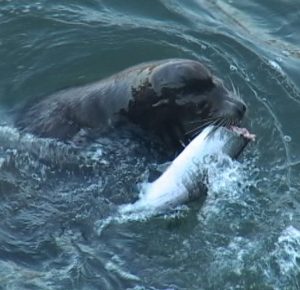
Sea lions take big bite out of early salmon runs
Early runs of wild spring Chinook salmon returning to the Columbia River are bearing the brunt of sea lion attacks, a new study suggests. The fish arrive in early spring before sea lions have left for summer breeding grounds and when the pinniped population is especially high at the river’s mouth. These salmon see higher mortality rates compared to later runs and the numbers have started to climb even over prior years, corresponding with a growing number of sea lions recorded near Astoria. >click to read< 08:56
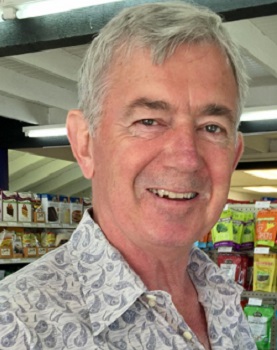
Joe King Hockema – Career Commercial Fisherman
Joe Hockema, 67, of Bend Oregon, formerly of Newport Oregon, passed away peacefully in his sleep on October 7, 2020. His death is attributed to his 2015 diagnosis of Lewy Body Dementia. Joe was born December 18, 1952 in Albany, Oregon to Everett and “Dottie” Hockema of Newport, Oregon. Following graduation Joe attended OSU, then joined the Army and served as a MP at the Fort Lewis Army Base in Washington State. Subsequently, he did a brief stint as a logger before embarking on a lifelong career as a commercial fisherman. Joe is survived by his mother, “Dottie”, wife, Carla “Lill”, children, Sarah, Chance, Chandler, Kodiak, siblings; Rex Hockema, and Hal Hockema. >click to read< 19:18
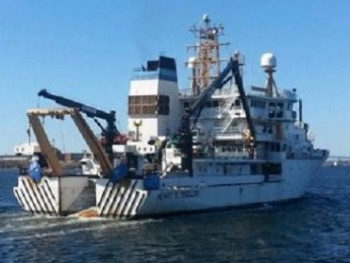
Collins and several colleagues call on NOAA to resume ‘usual operational tempo’
The National Oceanic and Atmospheric Administration (NOAA) should get back to its regular schedule of conducting fisheries research surveys, which have been cancelled since May due to the COVID-19 pandemic, according to U.S. Sen. Susan Collins and several colleagues. Additionally, NOAA should identify and resolve any challenges created by the pandemic that prevented this year’s surveys to ensure surveys are safely conducted in 2021, the lawmakers wrote in a Sept. 30 letter sent to Dr. Neil Jacobs, acting administrator at NOAA. Among the members who joined Sen. Collins in signing the letter were U.S. Sens. Richard Burr (R-NC), Roger Wicker (R-MS), and Doug Jones (D-AL). >click to read< 09:00
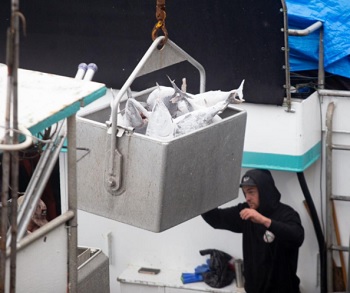
“Challenging,” “Inconsistent,” “Strange” – Rotten tuna season comes to a close
It’s been a stinky season for Washington and Oregon commercial tuna fishermen. The final albacore tuna landings are offloading at local ports this week, ending was has been a tough overall 2020 fishery. “Challenging,” “Inconsistent,” “Strange” and “Worst ever” are some of the words used to sum up the season by local processors, commercial and recreational fishermen. Catch coast wide this season has been about two-thirds of the 20-year average, according to Western Fishboat Owners Association Executive Director Wayne Heikkila, who monitors the commercial tuna fishing season coast wide from California to Washington as part of non-profit group representing 400 albacore fishermen on the West Coast. photos, >click to read< 18:25
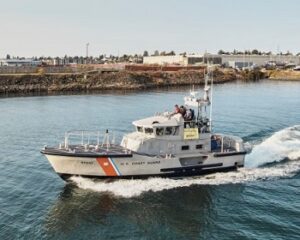
The US Coast Guard has accepted the Birdon America 47C MLB at the National Motor Lifeboat School
The US Coast Guard has accepted the Birdon America 47C MLB SLEP First Article Vessel at the National Motor Lifeboat School in Ilwaco, WA. The boat will undergo a four-month operational assessment by members of NMLBS. The NMLBS trains personnel to become elite Coast Guard surfmen. The 47 MLB is the standard lifeboat of the USCG. The boat is designed to weather hurricane force winds and heavy seas, capable of surviving winds up to 60 knots, breaking surf up to 20 ft and impacts up to three G’s; and, if the boat should capsize, it self-rights with all equipment remaining fully functional. >click to read< 13:24
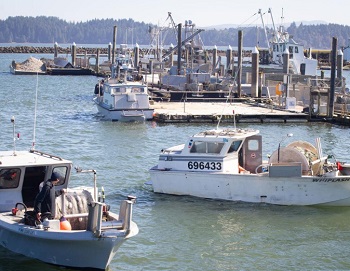
Coho swarm Willapa: Astounding run brings increased limits
An unexpectedly strong coho salmon return in the Willapa has fishery managers and biologists reassessing run size,,,. Willapa’s commercial gillnetters are hoping to get more fishing days this fall after early limits to avoid impacts on scarcer Chinook. Commercial fishermen are often the canary in the coalmine when it comes to reporting what’s occurring offshore. The first signs of a bigger-than-expected coho salmon run began showing up on the Port of Peninsula docks a couple weeks ago. >click to read< 18:28
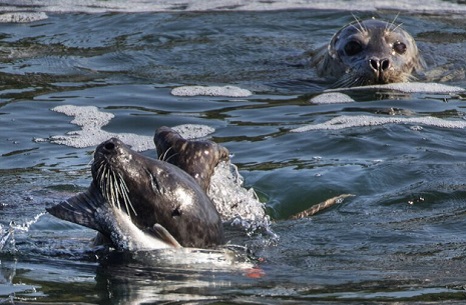
New “Gadget”? Underwater noisemaker to scare away seals at Ballard Locks
On a recent morning, after some acrobatics and horsing around, a seal cruising the locks suddenly took an all-business turn. When it resurfaced, it was with a mouth crammed full of coho. The Hiram Chittenden Locks, built more than 100 years ago, allow navigable access from the freshwater of Lake Washington and Lake Union to Puget Sound. But the locks also inadvertently created an attraction for seals. The concrete chute of the locks concentrates salmon, making easy pickings. As salmon runs have declined in Puget Sound, a range of methods has been tried over the years to shut down the buffet. Underwater firecrackers, pingers, even Fake Willy, a faux orca that used to be lowered into the channel in an attempt to scare off seals and sea lions. Now a new gadget is being tested at the locks, intended to startle seals to deter them. >click to leave< 20:20
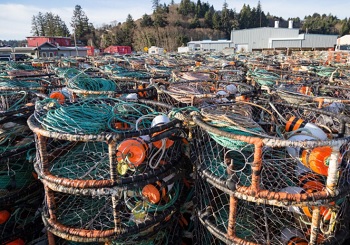
Crab industry, Oregon continue plans to avoid whale entanglement
New regulations for commercial Dungeness crab fishermen in Oregon aim to get boats on the water earlier in the season and reduce the amount of gear to avoid tangling with endangered whales. “Our fleet is made up of 400 individual businesspeople who each bring a different perspective to the issue,” said Hugh Link, the executive director of the Oregon Dungeness Crab Commission. “For over three years, they have been given the opportunity to weigh in on how best to mitigate the whale entanglement risk,” he continued. “But it is an ongoing process. These upcoming meetings are the next important step and we hope they take the opportunity to have their voices heard.”
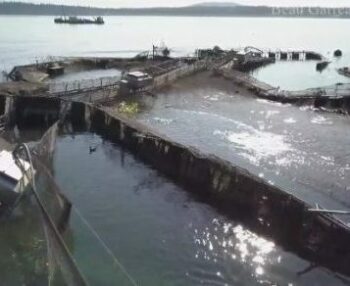
Judge hears lawsuit over fish farms in Puget Sound
Whether Cooke Aquaculture’s plan to raise native steelhead at fish farms in Puget Sound is a simple business transition or a complex threat to the marine ecosystem is being debated in King County Superior Court. Judge Johanna Bender heard testimony Thursday over Zoom in a lawsuit environment groups brought against the state Department of Fish & Wildlife for granting a permit to the seafood company to raise steelhead. “Did the department make a mistake in comparing the impacts of one type of stock to another, as opposed to comparing it to Puget Sound without fish farming at all?” she said.,, , the state Legislature passed a law that phases out Atlantic salmon net pen aquaculture by 2022 >click to read< 15:48
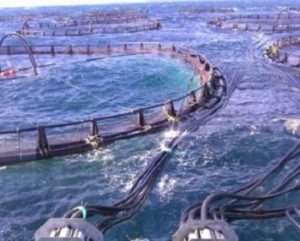
Senators Introduce Legislation to Establish Offshore Aquaculture Standards
Senators Wicker-R, Schatz -D and Rubio -R introduced legislation, the Advancing the Quality and Understanding of American Aquaculture (AQUAA) Act (S. 4723) in the U.S. Senate. The bipartisan AQUAA Act, which has companion legislation in the U.S. House, would support development of an offshore aquaculture industry in the U.S. to increase the production of sustainable seafood and establish new economic opportunities in federal waters. >click to read< 13:43
 First Nations, commercial fishermen demands end to B.C. salmon farms – A broad coalition of First Nations leaders, wilderness tourism operators, environmental NGOs and commercial and sport fishing organizations gathered in North Vancouver Sept. 22 demanding the federal government fulfill recommendations of the Cohen Commission to immediately remove open-net salmon farms from the Discovery Islands, and abolish all others from BC waters by 2025. >click to read<
First Nations, commercial fishermen demands end to B.C. salmon farms – A broad coalition of First Nations leaders, wilderness tourism operators, environmental NGOs and commercial and sport fishing organizations gathered in North Vancouver Sept. 22 demanding the federal government fulfill recommendations of the Cohen Commission to immediately remove open-net salmon farms from the Discovery Islands, and abolish all others from BC waters by 2025. >click to read<
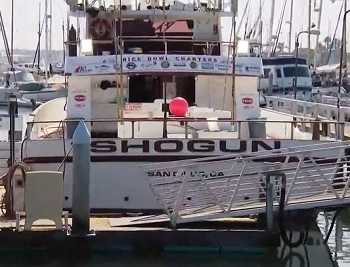
Four crew members on charter fishing vessel taken to area hospitals after suspected overdoses
San Diego Fire-Rescue responded to a call of multiple suspected overdoses on the fishing vessel Shogun near Fisherman’s Landing. Crews on scene administered Narcan to the four crew members who were then taken to hospitals in various states of consciousness. News 8 learned that two of the people were taken to Mercy Hospital, one to UCSD and it was unclear where the fourth was taken. The Shogun had just returned from a three-day fishing tour and no guests were on board when the suspected overdoses occurred. >video, click to read< 09:38
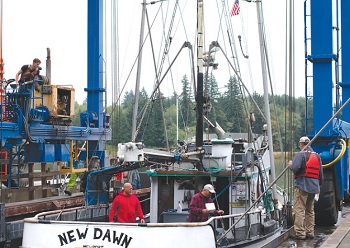
Port of Toledo continues expansion
“The boatyard used to only go down to there,” Port of Toledo Manager Bud Shoemake said at the Port of Toledo Shipyard on the Yaquina River,,, Shoemake, as he always does, credits good strategic planning as well as the port’s many partners, including the Siletz Tribe, for the growth and success of the port. “Everything we’ve done is because of the plan,” he said. The shipyard currently sees more than 200 boats come in each year, most for regular maintenance. “We call it a shave and a haircut,” said Shoemake — boats getting power washed, a fresh coat of paint and new zincs. >click to read< 10:39






